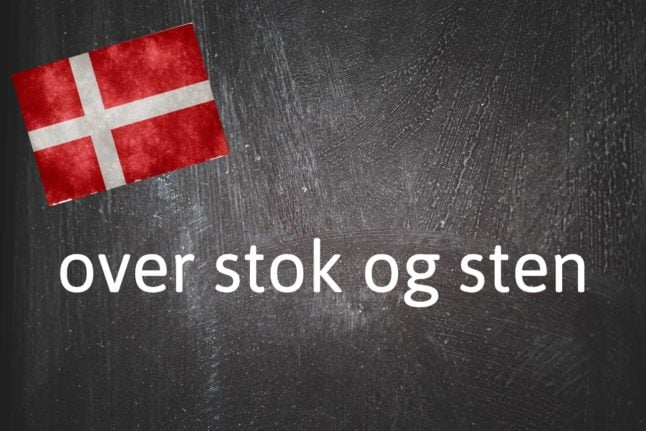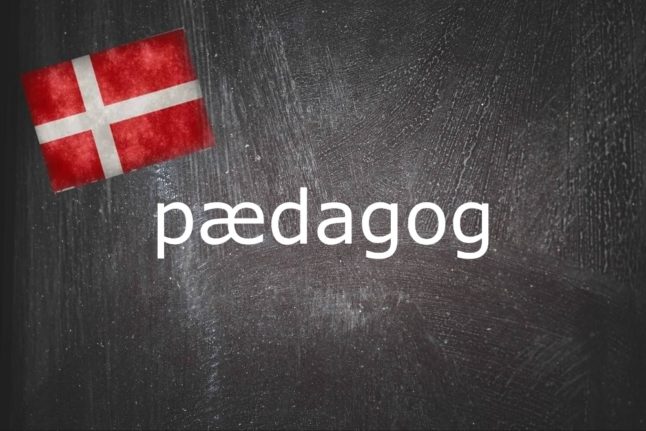What is over stok og sten?
This expression translates directly to “over stick and stone” or “over cane and stone”.
Its meaning, however, is not related to the old-fashioned (and very much debunked) English expression “sticks and stones will break my bones but names will never hurt me”.
Rather, it means to do something as quickly as possible with little thought or consideration for potential obstacles or barriers that might be in the way, with the potential to trip you up.
READ ALSO: Danish expression of the day: Spænder ben
If you go over stok og sten, then, you proceed roughshod (figuratively), even recklessly, in an effort to get to your destination or objective as quickly as you possibly can.
Similar English expressions are “at breakneck speed” or “more haste, less speed”, although the latter is more a forewarning that rushing things could cost you time in the end, rather than a simple statement that you’re making haste without due precaution.
Why do I need to know over stok og sten?
There’s a fair bit of debate about the origins of the expression, but Danish language regulator Dansk Sprognævn states that the “sticks and stones” refer to terrain and that riding over them is to ignore the possible bumps in the road ahead and speed forwards as fast as you can.
An alternative explanation is that the phrase comes from craftsmen who, in years gone by, painted trussed walls “over the (timber) posts and stones” in order to speed up the job, with the side effect of leaving the wall painted all in one colour, a less desirable aesthetic outcome.
Examples
Når hun tager opvasken går det over stok og sten. Der bliver kastet til højre og venstre med bestik og tallerkener.
She does the washing up at 100 miles per hour. Cutlery and plates fly about all over the place.
Det gik over stok og sten på vej igennem skoven, og det endte med at jeg kom til at vride om på anklen.
It was full speed ahead through the forest and I ended up spraining my ankle.



 Please whitelist us to continue reading.
Please whitelist us to continue reading.
Member comments